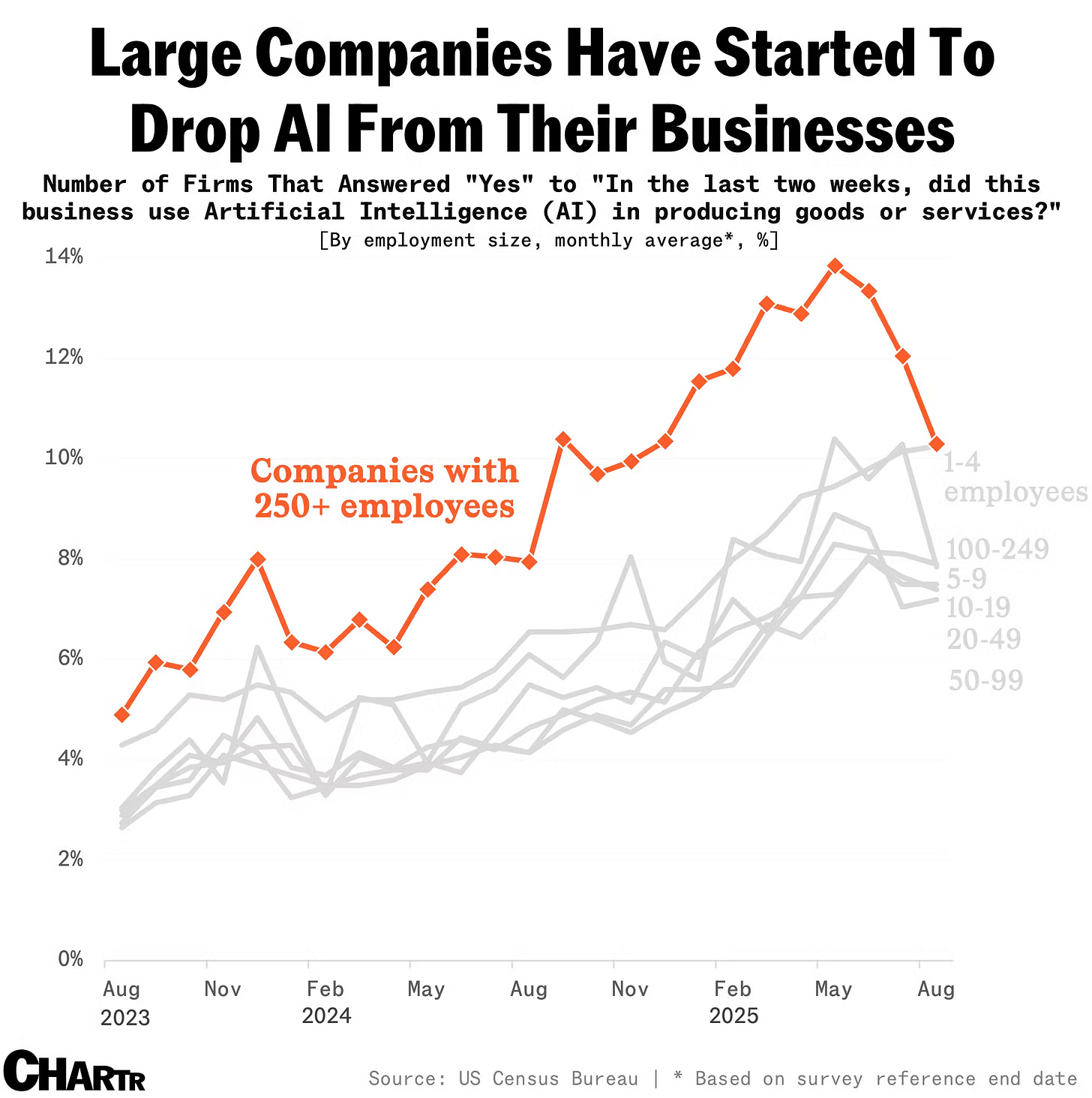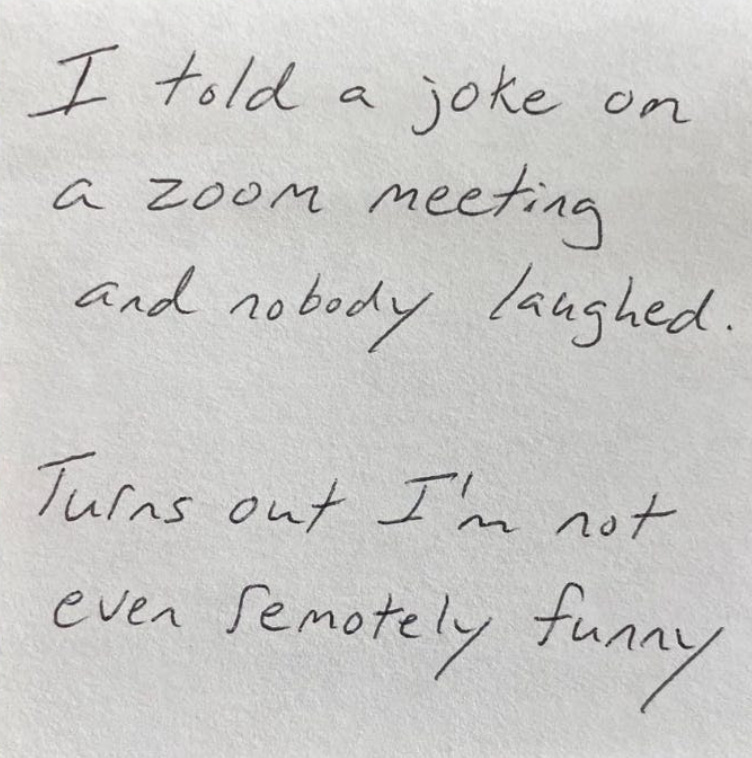The Sunday Drive - 09/21/2025 Edition [#181]
Musings and Meanderings of a Financial Provocateur
👋🏼 Hello friends! Let’s enjoy a leisurely Sunday Drive around the internet.
🎶 Vibin'
Tomorrow, September 22nd marks the Autumnal Equinox — the day when the earth’s axis is tilting neither toward nor away from the sun and the hours of daylight and dark are roughly equal…balanced if you will. I think the world these days would benefit from more balance.
This week, I’m vibin’ to Autumn Leaves by the inimitable Nat King Cole. Enjoy.
💭 Quote of the Week
“The man who views the world at 50 the same as he did at 20 has wasted 30 years of his life.“
— Muhammad Ali
📈 Chart of the Week
AI Adoption: Don’t Panic Just Yet
I found this week’s Chart especially interesting and worth highlighting. It shows that AI usage among larger companies — defined as those with more than 250 employees — has actually begun to decline. 😳
According to Torsten Sløk, Apollo’s Chief Economist, AI adoption in businesses with more than 250 employees dropped to 9% as of the second and third weeks of August — down from a peak of 15% in the first two weeks of June.
Even more telling: only 14% of companies surveyed in August expected to use AI in their businesses over the next six months, compared with 19% in June.
Is This the End of the Great AI Revolution?
At first glance, this might seem like cause for a hair-on-fire freakout.
Is it over already?!?! OMG!!
Not so fast.
The Logic of a Technology Rollout
This is exactly what you’d expect with a technology as transformative as AI.
Whenever something this disruptive comes along, there’s a rush to embrace it. Senior management at large companies allocate significant resources to deployment — but when there isn’t an immediate return on investment, they start to rethink their commitment.
This doesn’t mean the technology isn’t real. It means that large organizations — with entrenched systems and processes — need time, patience, and persistence to integrate something this big into their operations.
Why Small Companies Win Early
Smaller companies are typically younger and more nimble, with fewer bureaucratic processes slowing their ability to experiment and iterate.
History tells us that innovation usually comes from these kinds of firms. There’s no reason to think the AI economy — or the companies driving it — will be any different.
💡 Bottom line: This isn’t the end of the AI revolution — it’s just the end of the honeymoon phase for large companies. Expect the next wave of innovation to come from smaller, faster-moving firms that can show real ROI, paving the way for a more sustained enterprise adoption cycle later.
🚙 Interesting Drive-By's 🚙
💸 Conviction Capitalists: The Clash of Conviction vs. Consensus
🤔 Snack-sized Knowledge Is Making Us Dumb
💡 Agony and Ecstasy: The Risks and Rewards of a Concentrated Stock Position
🚗 How to Ship Your Car (and Why It May Save You Time and Money)
🤓 Scientists Train AI to Forecast 1000+ Diseases Years in Advance
👋🏼 Parting Thought
If you have any cool articles or ideas that might be interesting for future Sunday Drive-by's, please send them along or tweet 'em (X ‘em?) at me.
Please note that the content in The Sunday Drive is intended for informational purposes only, and is in no way intended to be financial, legal, tax, marital, or even cooking advice. Consult your own professionals as needed. The views expressed in The Sunday Drive are mine alone, and are not necessarily the views of Investment Research Partners.
I hope you have a relaxing weekend and a great week ahead. See you next Sunday...
Your faithful financial provocateur,
-Mike
If you enjoy the Sunday Drive, I'd be honored if you'd share it with others.
If this was forwarded to you, please subscribe and join the other geniuses who are reading this newsletter.




